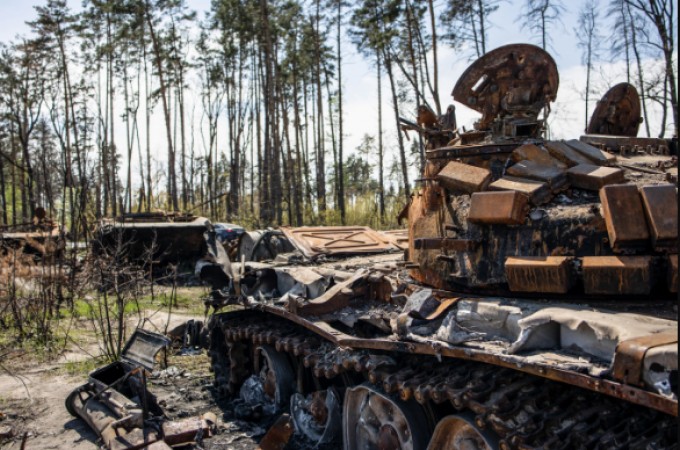
Berlin: A representative for the German defence giant Rheinmetall confirmed to The Guardian on Wednesday that it had purchased 49 decommissioned Leopard 1 battle tanks from a Belgian arms dealer for use in Ukraine. According to reports, many of the vehicles are in such bad shape that they can only be used as spare parts.
30 of the tanks, according to the spokesperson, would be decommissioned and given to Kiev, with the remaining tanks presumably being cannibalised for parts. They would be included in the military aid package that Defence Minister Oscar Pistorius announced at the recent NATO summit in Lithuania, according to a German government spokesperson.
The sale of the tanks was announced on Tuesday by Belgian arms dealer Freddy Versluys, who told numerous media outlets that an unnamed European state had bought them for an undisclosed sum.
Also Read: Israeli settler placed under house arrest after being accused of killing a Palestinian
Versluys and the Belgian government discussed purchasing the Leopard tanks earlier this year, but Versluys ultimately refused to accept the price tag of €500,000 ($549,000) per tank. Ludivine Dedonder, the minister of defence for Belgium, referred to the asking price as "unreasonable" given that Versluys had acquired the tanks for "scrap metal."
Also Read: Disturbing Report: 'Unimaginable Suffering' in Sudan Presented to UN Security Council
When the tanks were being decommissioned by the Belgian government in 2014, Versluys purchased them for €37,000. He stated earlier this year in an interview with The Guardian that the outdated vehicles needed "new engines, shock absorbers, fire control system, radar stations... the list can be continued."
Also Read: Palestinian man killed by Israeli forces in the West Bank
Despite the fact that neither Rheinmetall nor Versluys have disclosed the final cost, Versluys stated on LinkedIn that "we asked for a fair market price and someone was more than happy to take them."
The Leopard 1 was produced by Krauss-Maffei in West Germany, went into service in 1965, and was gradually phased out starting in the 1990s. More than 200 of these out-of-date vehicles will be delivered to Ukraine, with Berlin having given the go-ahead for about 80 of them to be delivered by the end of the year.
Both the Leopard 1 and its successor, the Leopard 2, have had little to no effect on Kiev's performance on the battlefield. According to the Russian Defence Ministry, Ukraine's ongoing counteroffensive against Russian forces has cost Kiev 43,000 soldiers and 4,900 pieces of heavy equipment in just two months. The ministry has reported that the losses include dozens of Leopard tanks.